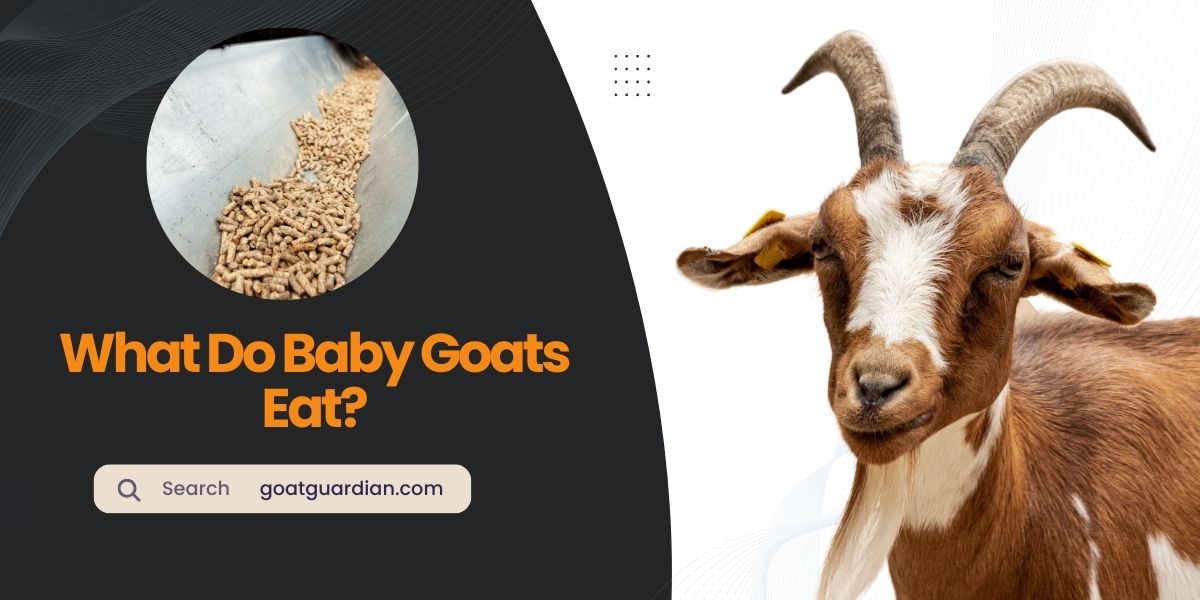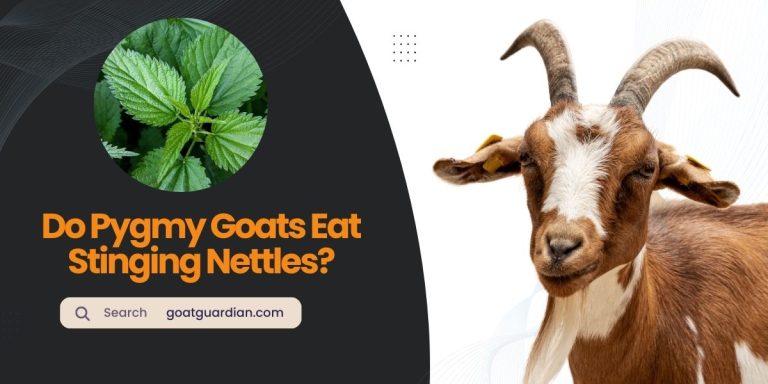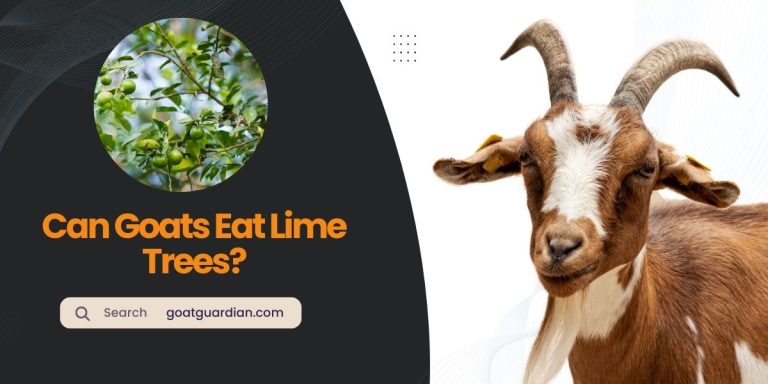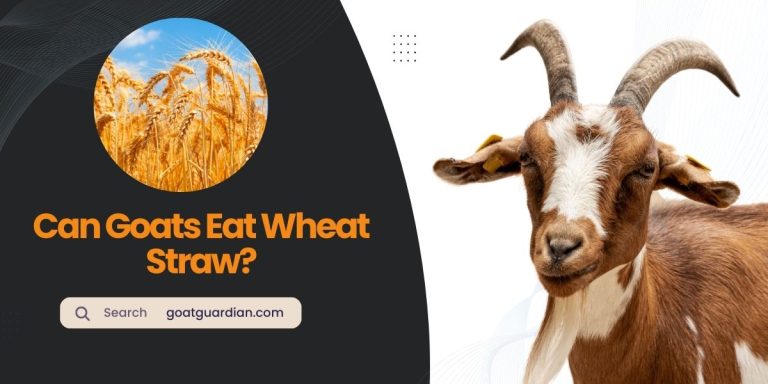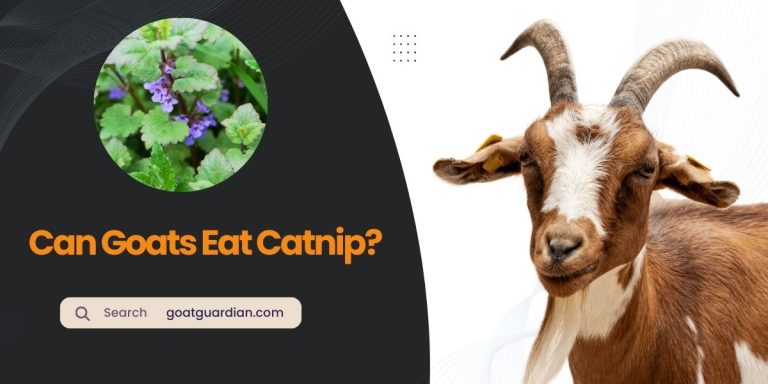What Do Baby Goats Eat? (Myths vs Reality)
Baby goats eat good-quality hay or alfalfa. Baby goats should have unlimited access to roughage such as grass, hay, or alfalfa starting from a few days old.
It is essential for their diet and overall health. Colostrum, the first milk produced by the mother goat, is also vital for the newborn’s survival as it provides important vitamins, minerals, and antibodies.
The baby goat should be fed within an hour of being born, and eventually, they will transition from milk to a diet that includes hay, grain, time in the pasture, and fresh water.
It is important to offer a varied and nutritious diet for the baby goat’s growth and development.
The Importance Of The Right Diet For Baby Goats
| A balanced diet is crucial for the growth and development of baby goats. Providing the right diet ensures that they receive all the necessary nutrients for their well-being. All baby goats should have unlimited access to roughage such as good-quality grass, hay, and alfalfa from a young age. These provide essential fiber and nutrients for their digestive system. Additionally, offering grain as a supplement to milk can begin at around one week old. This helps in providing extra energy and nutrients for their growth. It is important to note that the very first milk they receive, known as colostrum, is vital for their immune system. Colostrum contains essential antibodies and nutrients that boost their immunity. As they grow older, baby goats can gradually start consuming hay, grain, and fresh water. Eventually, they will transition from milk to a solid diet. It is advisable to consult with a veterinarian or an experienced goat breeder to ensure that the baby goats receive the appropriate diet and care for their specific needs. |
What Can Baby Goats Eat?
|
Feeding Baby Goats Right After Birth
| Baby goats should receive their first feed within an hour of being born. Colostrum, a nutrient-rich milk produced by the mother goat, is essential for the newborn’s survival. If colostrum is not available, there are alternatives you can provide for the baby goat. |
Colostrum is naturally fortified with vitamins, minerals, and antibodies that are essential for a newborn’s survival. If you believe the goat did not receive colostrum, consult a veterinarian for an appropriate substitute.
As baby goats grow, their diet should include good-quality hay or alfalfa. Additionally, you can offer them small amounts of grain and provide access to fresh water. It is important to gradually introduce solid foods and ensure a balanced diet for their proper development.
Remember, baby goats should be fed regularly and their diet should be adjusted based on their age and nutritional needs. Consult with a veterinarian or an experienced goat farmer for specific feeding recommendations.
Bottle Feeding Vs Nursing
Understanding the pros and cons of bottle feeding and nursing is crucial when it comes to ensuring baby goats receive the necessary nutrients. For bottle feeding, it is important to follow these tips for success:
- Use good-quality milk replacers or formulas specifically designed for baby goats.
- Prepare the bottle with warm water and clean equipment.
- Feed the baby goat frequently, approximately every 2-4 hours, based on its age.
- Observe the baby goat’s behavior during feeding for any signs of distress or difficulty.
- Properly sterilize and clean the feeding equipment after each use.
If the mother goat is available, nursing is another option. It is essential to ensure a healthy nursing experience by following these steps:
- Allow the newborn baby goat to nurse within the first hour of birth.
- Ensure the mother has sufficient colostrum, the first milk rich in vitamins, minerals, and antibodies.
- Monitor the baby goat’s nursing behavior and weight gain to ensure it is getting enough milk.
- If needed, provide supplemental bottle feeding to ensure the baby goat receives enough nutrition.
Ultimately, both bottle feeding and nursing can be effective methods for feeding baby goats, and the decision depends on individual circumstances and resources available.
Introducing Solid Foods To Baby Goats
Baby goats should start having unlimited access to roughage such as grass, hay, or alfalfa from as early as a few days old. This provides them with the necessary nutrients and fiber. It is important to offer them a varied diet to ensure proper growth and development.
When it comes to introducing grains, it is recommended to start offering them in small amounts at around one week old along with their milk. This will help them transition to solid foods. By one month old, they can be offered some hay and given some time to graze in the pasture.
It is crucial to provide fresh water to baby goats to keep them hydrated. While milk is their primary source of nutrition, they will eventually start eating solid foods alongside it.
However, it’s important to note that milk is still the main source of nutrients for baby goats, so they should not be fully weaned until they are around eight weeks old.
There are various types of milk that can be fed to baby goats, including colostrum (the first milk produced by the mother goat), cows milk, or goat milk replacers that are available commercially.
In conclusion, a baby goat’s diet should include a combination of milk, grains, hay, and pasture to ensure they receive a balanced and nutritious diet.
It’s important to gradually introduce solid foods while still providing them with an adequate amount of milk for proper growth and development.
Choosing The Right Milk For Baby Goats
The importance of colostrum as the first milk for baby goats. Colostrum is naturally fortified with vitamins, minerals, and antibodies that are essential for a newborn’s survival.
If you believe the goat did not receive colostrum, there are options for milk substitutes. Ideally, the dam will be producing enough colostrum that you can express her own into a bottle and immediately feed it to the kids.
Recommendations for the best milk for baby goats as they grow. At one week old, a baby goat can eat a small amount of grain in addition to drinking milk.
By one month, you can offer the baby some hay and give it some time in the pasture to ensure a varied and nutritious diet. Milk is the only way baby goats get their nutrients, so eventually, they will need to transition to other foods.
Water Needs For Baby Goats
Understanding the water requirements for baby goats, such as when and how to introduce water to their diet, is essential for their growth and overall health. Baby goats should have access to fresh and clean water as early as a few days old.
Offering water alongside their milk or formula can help them transition to a more solid diet. It is important to provide water in a shallow dish or bucket that is easy for them to reach and drink from.
Baby goats rely heavily on milk as their primary source of nutrition, but gradually introducing solid foods, such as good-quality hay or alfalfa, can help meet their growing nutritional needs.
While baby goats can start eating hay and grain within their first month, it is crucial to ensure they continue to nurse or receive milk until they are fully weaned.
Regular feeding intervals and monitoring their milk consumption is essential in promoting healthy growth.
In conclusion, providing fresh water, alongside appropriate milk or formula, is crucial for the well-being of baby goats. Gradually introducing solid foods like hay and grain can help them transition to a more varied diet and ensure their nutritional requirements are met.
Frequently Asked Questions On What Do Baby Goats Eat
What Can I Use To Feed A Baby Goat?
A baby goat’s diet consists of good-quality hay or alfalfa, along with milk. At one week old, you can introduce a small amount of grain. By one month, they can also eat hay and have time in the pasture. Colostrum is crucial for newborns.
Do Baby Goats Need Water Or Just Milk?
Baby goats need both water and milk. It is important to provide them with fresh water in addition to their milk diet.
What Do You Feed A 4 Week Old Goat?
A 4-week-old goat should have access to good-quality hay or alfalfa, as well as milk.
What Kind Of Milk Can I Give A Baby Goat?
Baby goats should be fed colostrum as the first milk. After that, you can give them goat’s milk or a specially formulated milk replacer for goats.
Conclusion
To ensure the healthy growth and development of baby goats, it is important to provide them with a nutritious diet. Starting from a few days old, baby goats should have unlimited access to good-quality hay or alfalfa as roughage.
Additionally, offering grain, time in the pasture, and fresh water will gradually transition them to solid foods.
Remember, the first milk they must receive is colostrum, which provides essential nutrients and antibodies. With proper care and feeding, your baby goats will thrive and grow into strong and healthy adults.
